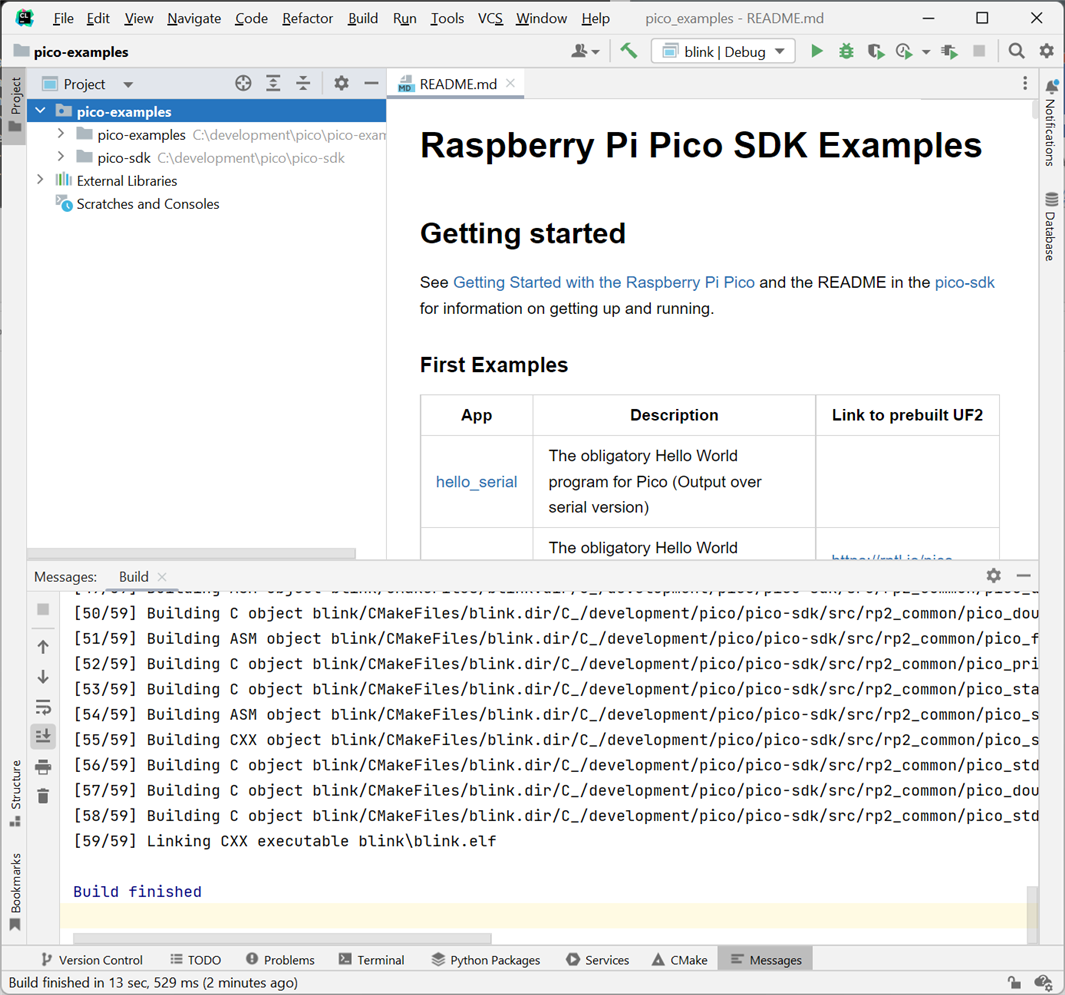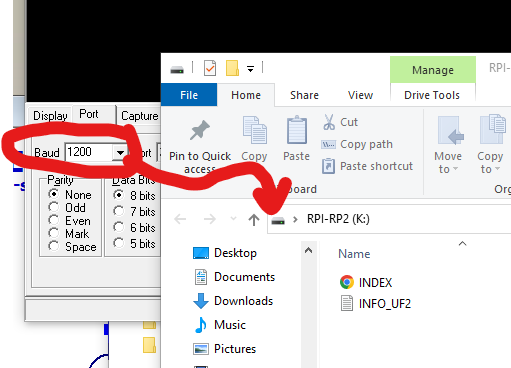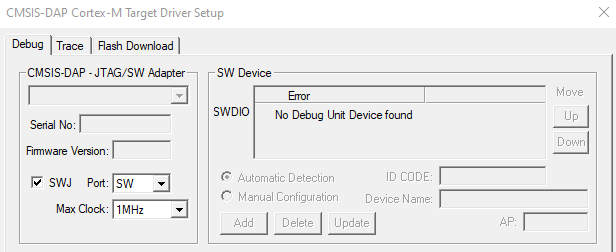For ages, the Keil development environment/compiler which they call MDK (Microcontroller Development Kit) has been a chargeable product, extremely unaffordable for home use : (
It's really annoying when microcontroller manufacturers only supply sample code using Keil. It's not always easy to port the project files to Eclipse, often it's hard and a lot of work!
For curiosity I re-logged onto the Keil website today, and noticed there is now a Community Edition! The announcement was in March it seems.
There doesn't seem to be a code limit, which is great.
I just now tried to build some sample code from Dialog Semiconductor (they have cheap BLE chips but 95% of the more useful example projects are with Keil, not Eclipse, hence the interest) and it worked and I was able to download to the target eval board, which has an integrated J-Link, so that works too. I'm still learning how to use Keil, it's new to me.
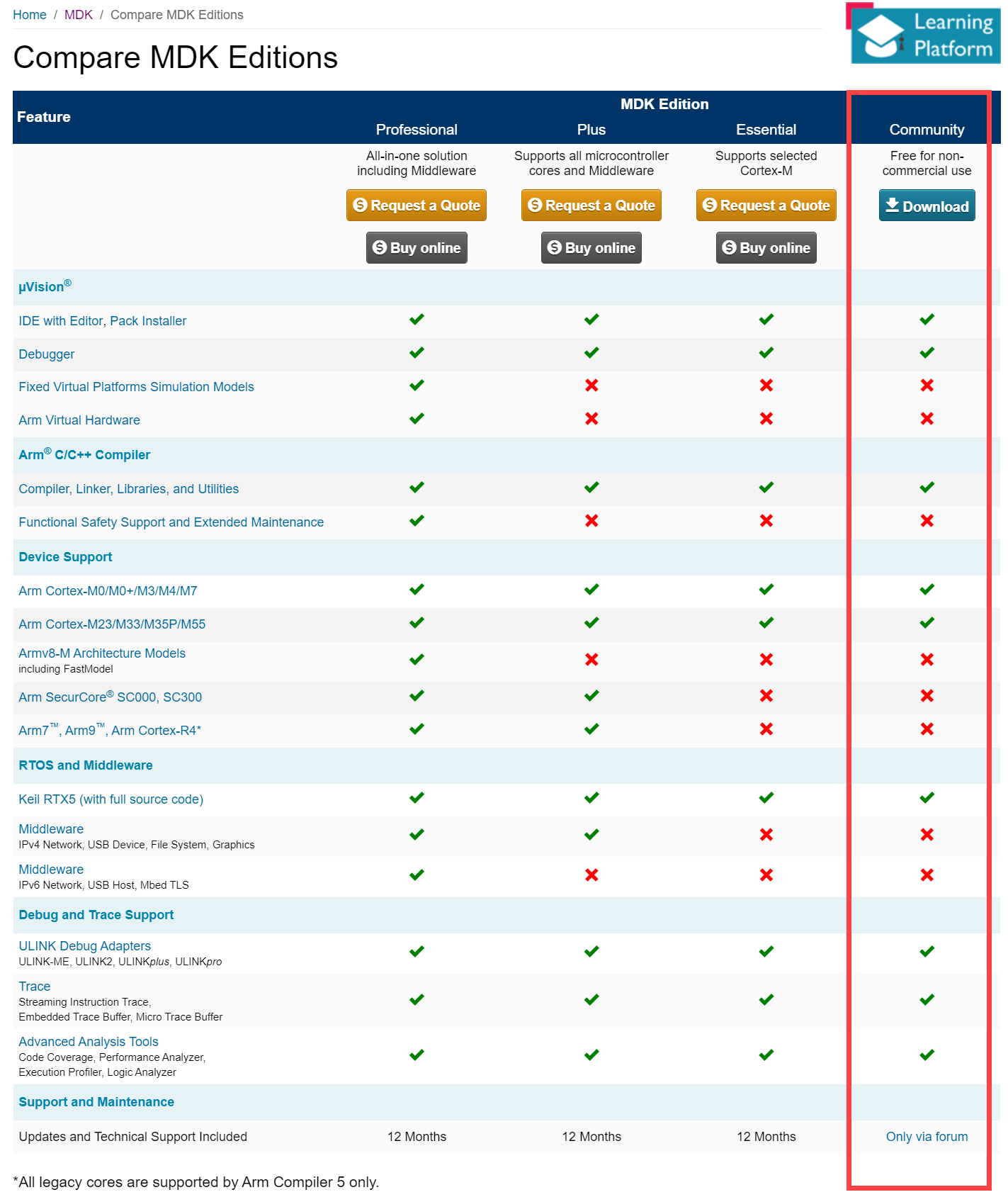
Keil has a pack system which is quite neat.. I've only installed the Dialog specific pack so far:
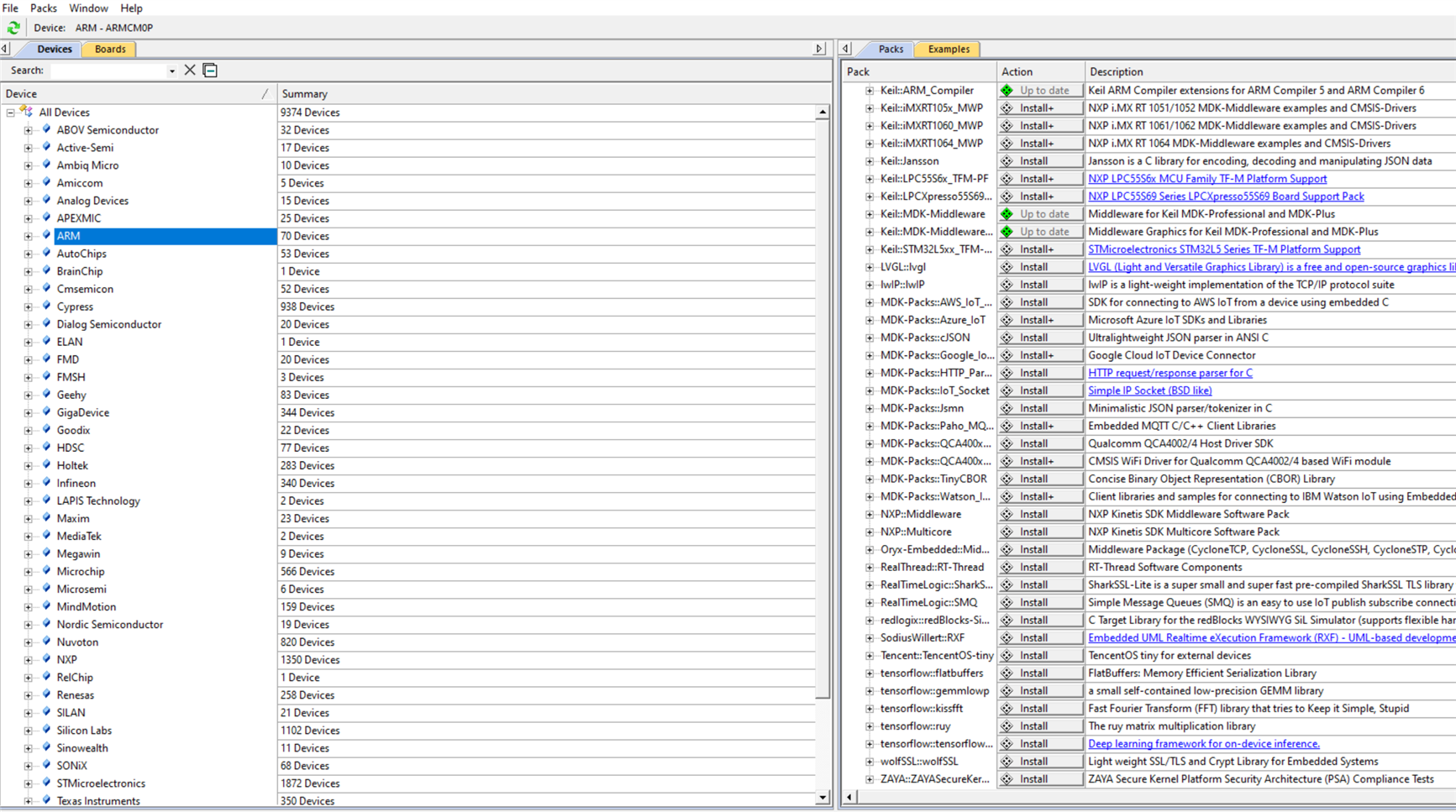
Anyway, I just thought I'd mentioned that the community edition was available, in case anyone else is interested in trying it too.



